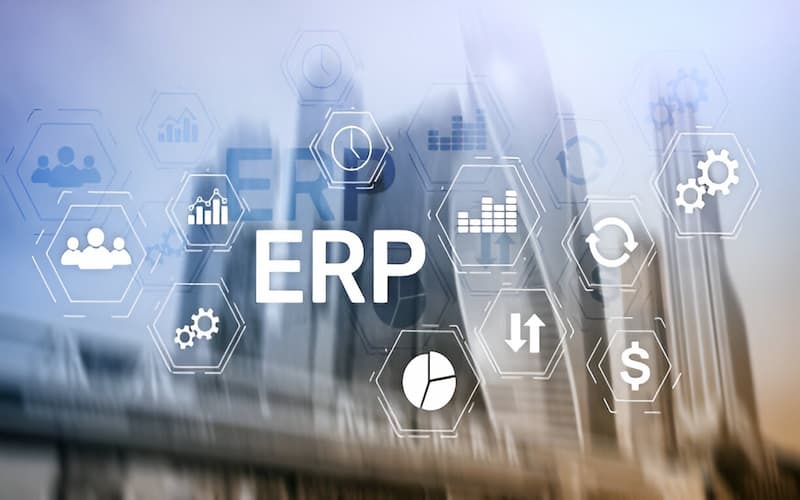
Benefits of Localized ERP Solutions for Saudi Businesses
As Saudi Arabia rapidly evolves into a digitally driven economy under Vision 2030, businesses across all sectors are embracing technology to optimize operations, improve compliance, and stay competitive. Among the most transformative tools being adopted is the ERP system in Saudi Arabia, especially those that are localized to meet the country’s unique regulatory and operational needs.
While global ERP systems offer robust features, localized ERP solutions bring added value by aligning with regional business practices, cultural nuances, and legal frameworks. For businesses operating in the Kingdom, localization is not just a bonus—it’s becoming a necessity.
Here’s a deep dive into the key benefits of choosing a localized ERP system in Saudi Arabia.
1. Compliance with ZATCA and VAT Regulations
One of the most critical factors influencing ERP adoption in Saudi Arabia is regulatory compliance. The Zakat, Tax and Customs Authority (ZATCA) has enforced strict guidelines around VAT and e-invoicing, requiring digital solutions that can integrate with government platforms like Fatoora.
A localized ERP system in Saudi Arabia is built with these regulations in mind. It ensures accurate VAT calculations, real-time e-invoicing capabilities, and built-in updates whenever ZATCA introduces new mandates. This significantly reduces the risk of penalties and saves businesses the hassle of manual reporting or retroactive software updates.
2. Arabic Language Support and User Interface
Language accessibility plays a major role in ERP usability. A localized ERP system typically offers full Arabic language support—not only for the user interface but also for reports, invoices, and customer-facing documents.
This is especially important for businesses where staff prefer to operate in Arabic, or where clients require Arabic documentation. It also ensures smoother onboarding, training, and communication within teams, which boosts overall productivity.
3. Alignment with Local Business Culture and Practices
Saudi businesses operate in a unique cultural and commercial environment. A localized ERP solution takes into account regional workflows, documentation standards, business hierarchies, and approval structures.
For example, some ERP systems offer customized modules that reflect the Saudi labor market, leave entitlements based on Islamic holidays, and payroll rules that align with the General Organization for Social Insurance (GOSI). These localized modules help businesses manage operations in a way that is both culturally respectful and operationally accurate.
4. Better Integration with Local Banks and Payment Gateways
An effective ERP system must facilitate seamless financial transactions and reporting. Localized ERP platforms in Saudi Arabia are often pre-integrated with the Kingdom’s leading banks, payment processors, and digital wallets.
This means businesses can automatically reconcile bank statements, initiate payroll payments, and manage vendor transactions without leaving the ERP environment. These integrations enhance financial transparency and reduce manual workload, especially for accounting and finance teams.
5. Tailored Customer Support and Training
Working with a local ERP vendor or provider often comes with the benefit of personalized, in-country support. This is crucial when dealing with time-sensitive issues or when technical assistance is needed in Arabic.
Localized ERP providers also offer region-specific training, either online or on-site, which is tailored to the business environment in Saudi Arabia. This helps employees get up to speed quickly and ensures the ERP system is being used to its full potential.
6. Faster Implementation and Lower Customization Costs
Because a localized ERP system is already designed to meet Saudi Arabia’s business and compliance requirements, the need for heavy customization is reduced. This results in faster deployment and significantly lowers implementation costs compared to international solutions that require extensive configuration.
In many cases, local ERP vendors offer industry-specific modules for sectors like construction, healthcare, retail, or logistics—each pre-configured with templates that align with Saudi business norms.
7. Improved Security and Data Sovereignty
Data residency is a growing concern in the digital age. Some Saudi businesses, especially those in sensitive sectors, prefer (or are required) to host data within the Kingdom. Localized ERP systems often provide hosting options that comply with local data privacy laws and offer cloud services via Saudi-based data centers.
This enhances security, speeds up system access, and ensures compliance with any future data protection regulations introduced within the Kingdom.
8. Scalability for Saudi and GCC Expansion
A well-designed localized ERP system in Saudi Arabia also supports regional scalability. Many Saudi businesses have ambitions to expand into neighboring Gulf Cooperation Council (GCC) countries. ERP systems that support bilingual operation (Arabic/English), multi-currency management, and cross-border tax compliance make this expansion seamless.
These capabilities allow companies to maintain a unified system across locations while respecting local regulations in each country.
9. Encouraging Digital Transformation for SMEs
With government incentives aimed at supporting small and medium-sized enterprises (SMEs), localized ERP systems are becoming more accessible to this critical sector. Many local vendors offer cloud-based, modular ERP packages at affordable prices.
By adopting a localized ERP system, SMEs in Saudi Arabia can digitize their operations, reduce manual errors, and scale their business without the burden of investing in large, complex systems.
10. Support for Vision 2030 Objectives
Finally, adopting localized digital tools such as ERP systems directly supports the Kingdom’s Vision 2030 objectives. These include goals like increasing non-oil GDP, enhancing SME contribution to the economy, and improving government efficiency through digital integration.
Using a localized ERP system in Saudi Arabia allows businesses to align with national digital strategies and contribute to a smarter, more transparent business ecosystem.
Conclusion
Choosing a localized ERP system in Saudi Arabia is more than a technical decision—it’s a strategic move that aligns with cultural values, regulatory demands, and the Kingdom’s digital future. From VAT compliance to payroll automation and Arabic support, localized solutions offer unmatched relevance and functionality.
As Saudi businesses grow and evolve in the digital era, investing in an ERP platform built for the local market is a smart way to ensure efficiency, resilience, and long-term success.
Post a comment